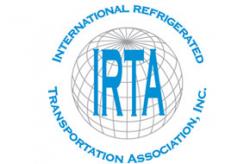Government Connection
President Joe Biden unveiled a $5.8 trillion budget request designed to appease moderate Democrats on Monday, March 28, 2022, with a proposal that emphasized deficit reduction, additional funding for police and veterans, and flexibility to negotiate new social spending programs. Congress historically sets presidential budgets aside, but they do form a key messaging device. The 2023 budget calls for $1.598 trillion in so-called discretionary spending -- areas that aren’t linked with mandatory programs like Social Security -- with $813 billion for defense-related programs and $769 billion for domestic spending. That marks a 5.7% increase from the omnibus spending bill for the 2022 fiscal year that was signed by Biden earlier this month. The budget would reduce deficit spending by $1 trillion over the coming decade, buoyed by the elimination of pandemic assistance programs. In addition, the White House included measures that would add up to the biggest tax increase in history in dollar terms, helping stabilize deficits relative to the size of the economy. These tax increases include 2.5 trillion in tax hikes on wealthy individuals and large corporations over a decade, which is in addition to the $1.5 trillion in tax hikes included in the House-passed Build Back Better package; a 20% minimum tax on the unrealized capital gains for households worth at least $100 million; and a call to raise the corporate tax rate to 28% from 21%. But the proposal to tax unrealized capital gains ran into opposition from Sen. Joe Manchin (D-W.Va.), likely dooming it just hours after it was sent to Congress.
Of note, President Biden has called for an increase in funding to the following Departments/Agencies:
- Department of Agriculture - The Budget requests $28.5 billion in discretionary funding for USDA, a $4.2 billion or 17.1-percent increase from the 2021 enacted level. The President’s 2023 Budget for USDA: invests in tackling the climate crisis while mitigating its ongoing impacts on communities; strengthens the food supply chain and nutrition safety net; advances environmental justice; creates new jobs and opportunities in rural communities; supports underserved farmers and producers; and restores America’s advantage in agriculture.
- Department of Labor - The Budget requests $14.6 billion in discretionary funding for DOL, a $2.2 billion or 18-percent increase from the 2021 enacted level. The President’s 2023 Budget for DOL invests in: building the skills of America’s workers; protecting workers’ rights, health and safety, and wages; strengthening the integrity and accessibility of the Unemployment Insurance (UI) program; and creating good, middle-class jobs that are safe, equitable, pay fair wages and benefits, empower workers, and offer opportunities for advancement.
- Department of Transportation - The Budget requests $26.8 billion in discretionary budget authority for 2023, a $1.5 billion or six-percent increase from the 2021 enacted level. Consistent with the Bipartisan Infrastructure Law, the Budget also includes $78.4 billion in mandatory funds, including contract authority and obligation limitations, and $36.8 billion in emergency-designated advance budget authority, for transportation infrastructure investments in 2023. The President’s 2023 Budget for DOT supports the historic investments in surface transportation, aviation, and maritime made by the Infrastructure and Investment Jobs Act (Bipartisan Infrastructure Law), which will strengthen the Nation’s transportation system while tackling climate change and protecting environmental resources, addressing inequities and advancing environmental justice, and promoting good-paying jobs and economic vitality
- Environmental Protection Agency - The Budget requests $11.9 billion in discretionary funding for EPA, a $2.6 billion or 29-percent increase from the 2021 enacted level. Resources provided through the 2023 Budget complement investments in water infrastructure, including lead pipe replacements, and in the remediation of contaminated and idle land provided in the Infrastructure Investment and Jobs Act (Bipartisan Infrastructure Law). The President’s 2023 Budget for EPA: restores the Agency’s capacity to carry out its mission; implements the President’s Justice40 commitment; and funds a broad suite of recently authorized programs to improve the Nation’s water infrastructure.




Add new comment